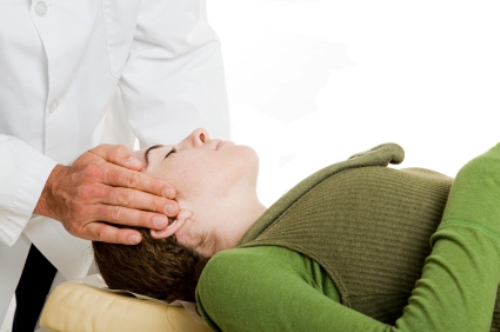
Consult A Doctor
Sufferers of migraine pain often want to close the drapes, lock the door, turn off the lights, and just be left alone in their misery. And the fact is, getting medical treatment for migraines right can be prolonged, expensive, hit-or-miss proposition. Still, it's better to work with your doctor than without medical help. It is especially important to see a doctor when you have the worst headache pain you have ever had, when a headache persists for more than 24 hours, when the trigger for your migraine is a physical injury, when you have paralysis on one side of your body or the pain is on one side of your head, when the pain is accompanied by neck stiffness, or when the treatments that usually work for you stop working.
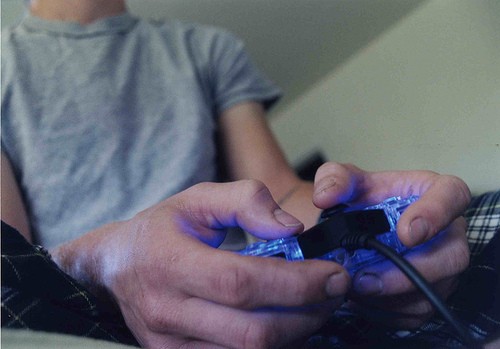
Use the "Law of Distraction"
Anyone who has actually had a migraine might be understandably skeptical of the advice that playing a video game or doing some light exercise might serve as a distraction from the pain, but it actually works. When people who have migraines engage in mental or physical activity, they are less aware of the location of the pain. The brain stops getting the message "It's a migraine! It's a migraine!" Without feeling the pain so specifically in the head, at least all the memories of other painful migraine events are less readily accessible to the brain, and it's natural to feeler calmer, more relaxed, and maybe just a little less pain. The secret to success with this method is to start doing whatever it is you need to do as soon as symptoms start.
- Important notification about information and brand names used in this slideshow!
- Photo courtesy of RebeccaPollard by Flickr : www.flickr.com/photos/34396501@N00/58694182/
- www.wikihow.com/Manage-Migraine

Practice Yoga And Meditation
Will meditation each day keep the migraines away? Studies in of medical students who get migraines in Thailand found daily practice of mindfulness meditation lowers the adrenal glands' production of the stress hormone cortisol. When cortisol levels are lower, there are fewer incidents of vascular stress in the brain that can lead to migraine pain. Similar benefits have been found in two clinical trials of yoga for preventing migraines. Neither meditation nor yoga is an absolute preventive for migraines, but both practices reduce the frequency and severity of migraine pain. It isn't necessary to do both practices, either yoga or meditation would be helpful, and it isn't necessary to do them each and every day. Two or three times a week is enough to make a difference.

Drink More Water (But Not Too Much)
Staying well hydrated limits how long a migraine lasts. When you are in the throes of migraine pain, chances are you just want to be left alone. You don't want to eat, and you don't want to drink. Failing to drink enough water during a migraine, however, makes the event worse, especially when migraines are accompanied by vomiting. It is important to replace electrolytes along with fluid. Keep a few bottles of rehydrating drink such as Gatorade on hand just for migraine attacks, and take a bottle with you when you retreat to your room to deal with the migraine. On the other hand, don't try to use water as a migraine cure. It won't work. Too much water (more than 2 or 3 glasses of water, or 2 bottles of rehydration drinks) can be just as detrimental as too little.

Stick With Your Daily Routine
Migraines have a way of coming at the worst possible moment. Usually they occur after a particularly frustrating day at work or a particularly enjoyable day with friends and family. The trigger in both instances is interrupting routine. It's not too much to say that part of any prevention program for migraines is trying to lead a somewhat boring life. Get regular sleep. Eat meals in regular amounts at regular times. Be careful trying new foods (especially any kind of stinky high-protein food, such as smoked fish or caviar) and be wary of fine wines. Red wine is a trigger for many migraineurs. It's also helpful to make a note, preferably on paper or in a computerized diary (such as an email to yourself) of anything that was different just before you had a migraine. It's hard to remember to do this, but it is extremely helpful to identify interruptions in your routine that result in migraine headaches.
- Important notification about information and brand names used in this slideshow!
- Photo courtesy of jan-willem by sxc.hu : www.sxc.hu/photo/1182879
- www.wikihow.com/Manage-Migraine

Try Homeopathic Treatment
Many people are understably skeptical of homeopathic treatment. After all, a homeopathic remedy is, on a physical level at least, nothing but an infinitesimally tiny amount of a noxious agent designed to invoked the body's "energetic defenses" against the disease that a larger amount of the substance would cause. Even in the era of quantum mechanics, the theory of homeopathy is still "out there." But homeopathics often work anyway (and apparently, scientists believe, just because of a placebo effect). It's always best to visit with a credentialed homeopathic physician, who will help you understand the health, emotional, personal, and social issues surrounding your disease. Naturopathic physician Dr. Paul Theriault says "80% of the homeopathic cure is simply understanding the disease." Then use the remedy to remind you that you can overcome your headache issues.
- Important notification about information and brand names used in this slideshow!
- Photo courtesy of tinpalace by sxc.hu : www.sxc.hu/photo/538383
- www.wikihow.com/Manage-Migraine
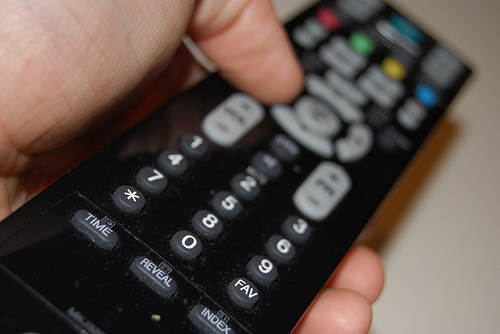
Don't Change TV Channels Too Much
Channel surfing, especially if you aren't the person who has the controls, can trigger migraines. One of the ways neurologists understand migraines is that they result from "retinal spreading depression." The nerve cells at the back of the eye transmit an "excited" nerve signal every time the image on the screen changes. These nerves become relatively "depressed" when the image on the screen stays the same. Every time there is a change of channel, the vision centers of the brain require more glucose and oxygen and more blood flow. This blood flow can't go back to normal as long as the images on the screen continue to change. The blood vessels eventually "overload" so that migraine pain results. If you are subject to migraines and you can't control changing channels, at least close your eyes to minimize the pain in your brain.
- Important notification about information and brand names used in this slideshow!
- Photo courtesy of espensorvik by Flickr : www.flickr.com/photos/28478778@N05/5728485497/
- www.wikihow.com/Manage-Migraine
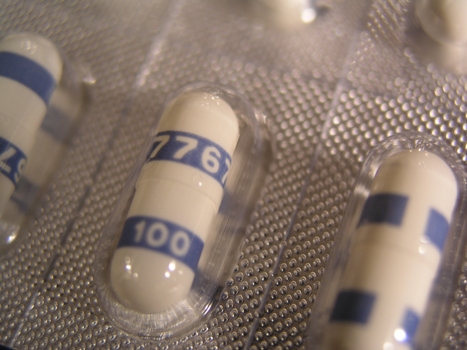
Take The Right Painkillers In The Right Amount
An aspirin a day, many migraine sufferers discover, helps keep the migraine away. Aspirin has fallen out of favor as a pain reliever for many conditions, because of its tendency to cause stomach upset and because of the fact that people who take aspirin aren't as likely to need a prescription for an anticoagulant like Plavix. Most doctors don't recommend aspirin for most conditions. For migraine, however, aspirin is still a good, if not 100% effective, painkiller. It's a good idea, unless you are allergic to aspirin or you take other medications for which the doctor has told you not to take aspirin, to take one aspirin at the beginning of an attack. Not two, not ten, one aspirin. Just one. It won't stop the attack, but it will help. Most people who have migraines also benefit from taking an 81 mg "baby" aspirin once a day as a regular health routine. Regular use of aspirin, if you are not allergic to it, and if you do not have stomach ulcers, will probably help you feel better over the long run.
- Important notification about information and brand names used in this slideshow!
- Photo courtesy of Rotorhead by sxc.hu : www.sxc.hu/photo/485453
- www.wikihow.com/Manage-Migraine

Don't Shout Too Much
One way shouting matches can help relieve migraine pain is getting a punch in the nose that hurts even worse. Most of the time, however, shouting will make migraines worse or even trigger an attack. When you are angry, upset, or fearful enough to shout repeatedly, your adrenal glands start releasing the stress hormone cortisol. This stress hormone causes constriction of blood vessels all over your body as a reflex action to protect you from bleeding if the situation were to lead to a cut. Constricting blood vessels in the head, however, has the same effect as "brain freeze" from eating too much ice cream--only warming your head won't make the pain go away. Whenever possible, deal with situations decisively so that you don't undergo unnecessary stress. Shout only when you really need to, and don't compound a bad situation by getting a migraine, too.




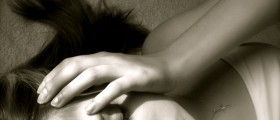
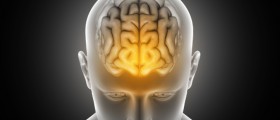




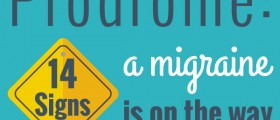
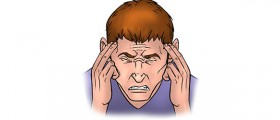










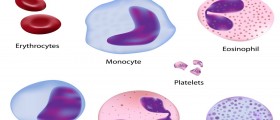
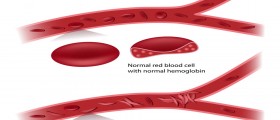
Your thoughts on this
Loading...